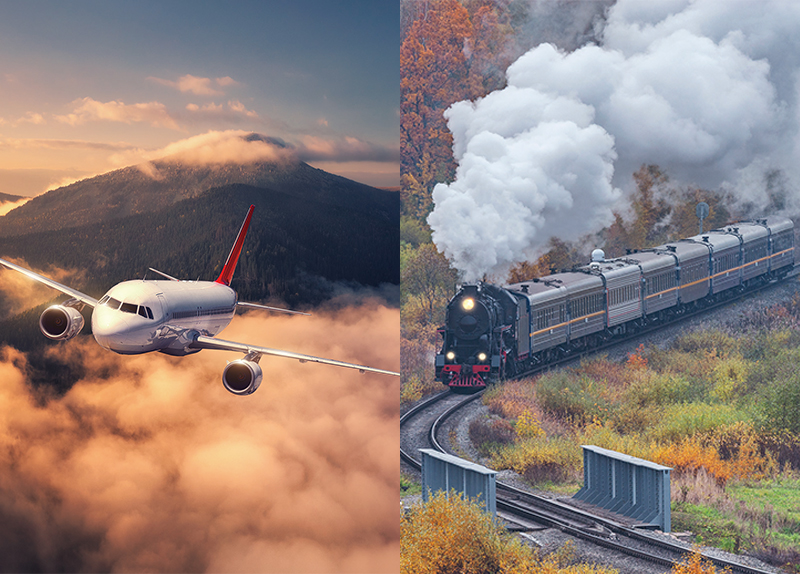 What’s This About?
What’s This About?Air travel and train journeys both offer unique advantages, making them popular choices for different travelers. While planes promise speed and global connectivity, trains deliver scenic routes and eco-friendliness. But which is truly the best way to travel? Join us as we debate the merits of air versus train travel.
Constructive
Pro Finn
Air travel is the best way to travel because it is unparalleled in speed, efficiency, and global accessibility. For long distances, airplanes offer the fastest and most reliable transportation, cutting what could be days of travel by car or train into mere hours. For instance, a flight from New York to Los Angeles takes around six hours, whereas a train trip takes over 60 hours. This time-saving aspect is invaluable for business and leisure travelers who want to maximize their time. Moreover, air travel connects the world in ways no other mode of transport can. Airplanes provide the only viable means of transportation to many islands, mountain regions, and distant countries, opening the world to exploration. Without air travel, places like the Maldives or Alaska would be far less accessible to international tourists.
Con Alice
Train travel is the best way to travel because it combines efficiency and comfort. Trains are ideal for short to medium distances, offering comparable speed to airplanes when accounting for the protracted airport procedures. High-speed rail networks, like South Korea’s KTX and Japan’s Shinkansen, provide a seamless and efficient experience. Passengers can travel from city center to city center, avoiding the hassle of lengthy check-ins, long security lines, and costly transfers. Comfort is another key advantage. Unlike cramped airplane seats, trains offer spacious seating, the ability to walk freely, and even private cabins for longer journeys. Travelers can stretch their legs and avoid the turbulence often associated with flights. Scenic routes also provide travelers with stunning views, transforming the journey into an enjoyable experience rather than a mere necessity.
Rebuttal
Pro Finn
While train travel has its advantages, several drawbacks make it less appealing than other modes of transportation, particularly air travel. For one, train networks are confined to specific regions, leaving vast areas inaccessible. Unlike airplanes, which connect even remote destinations worldwide, trains can only go where tracks are. Furthermore, train schedules can be rigid, with fewer departure options than flights. Delays due to weather, track maintenance, or strikes can disrupt travel plans. Unlike airplanes, trains rarely offer alternative routes for immediate travel adjustments. In stark contrast, modern airports provide flexible schedules and multiple route options. In addition, in terms of safety, air travel is statistically one of the safest modes of transportation. The accident rate for commercial flights is remarkably low, making flying a reliable choice for millions of passengers daily.
Con Alice
Air travel, while fast and far-reaching, has its downsides. Air travel is one of the most polluting forms of transportation. A transatlantic flight can produce more CO₂ per passenger than a year’s worth of car travel. In comparison, trains are one of the greenest modes of transportation, being significantly more energy-efficient and emitting up to 90 percent less carbon dioxide per passenger kilometer than planes or cars. Furthermore, flights are more susceptible to delays and cancellations due to weather conditions, air traffic, or technical issues. This unpredictability can cause significant inconvenience for travelers. In addition, train travel fosters a sense of cultural immersion that air travel cannot. Travelers can engage with locals and experience regional stops. The affordability of train tickets also makes this form of travel accessible to a broader audience.
Judge’s Comments
Thank you both for your intriguing arguments. As we can see from this debate, air and train travel have unique strengths. Ultimately, the best choice depends on individual priorities, distance, and the experience travelers seek.